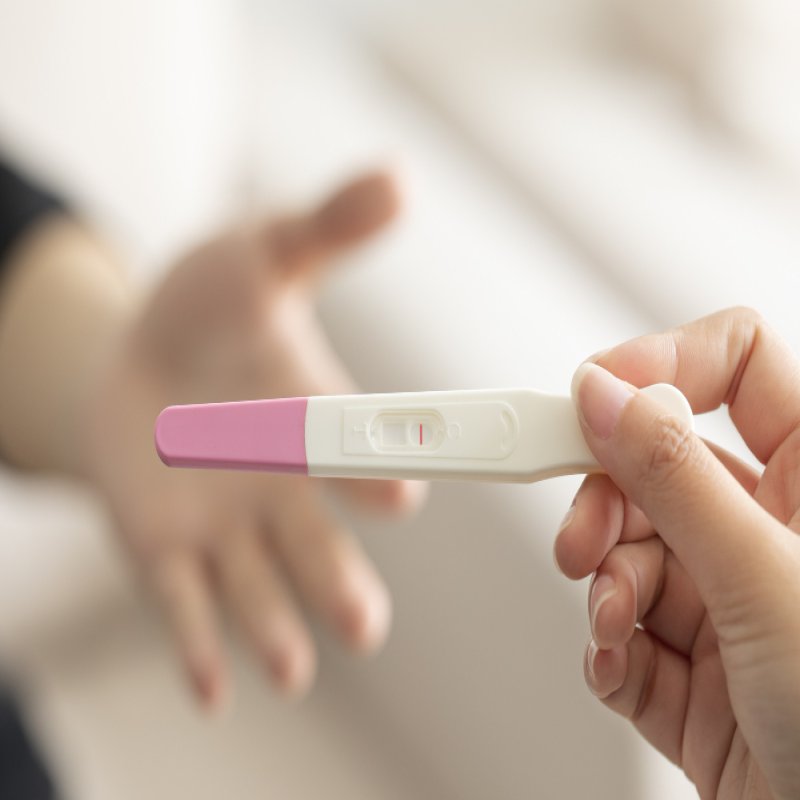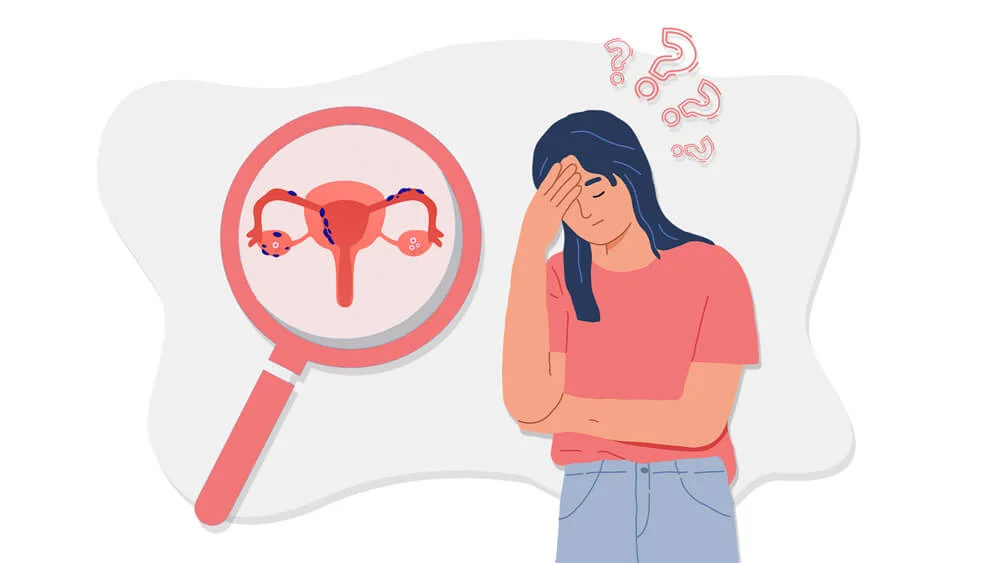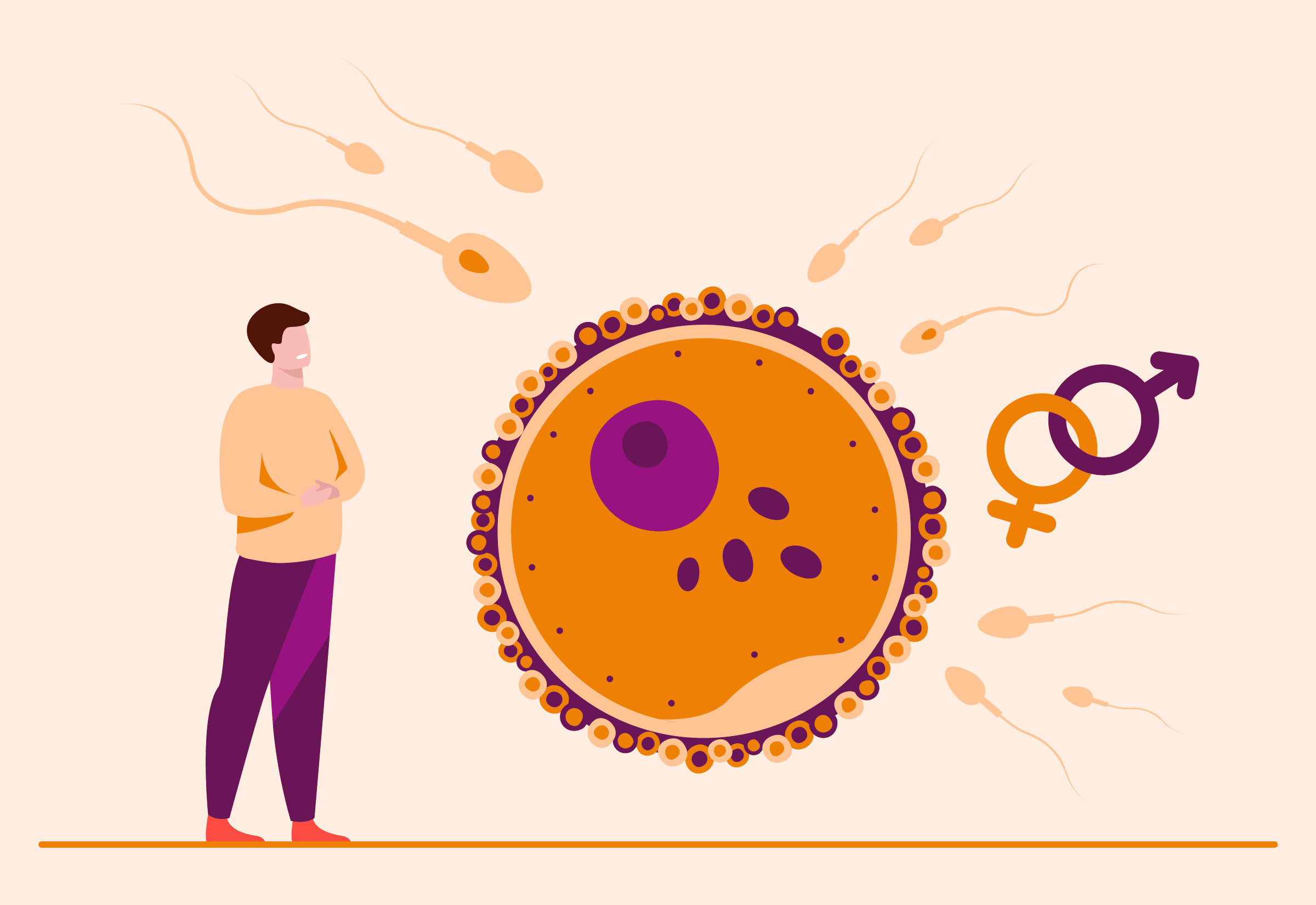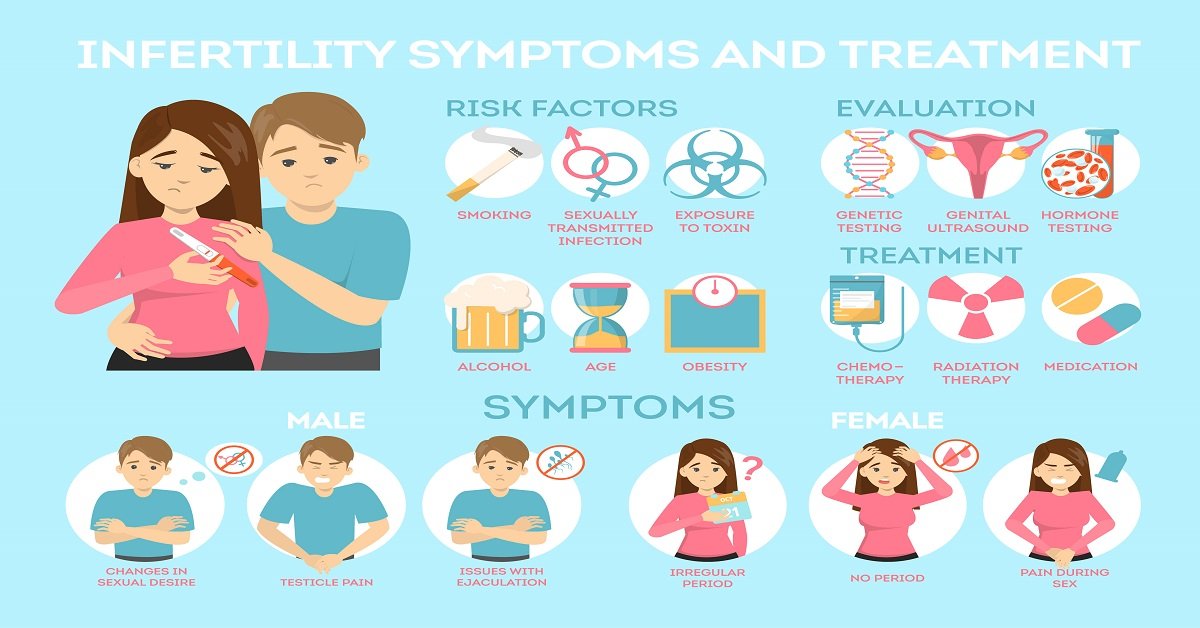
Women are finding it difficult to reproduce and have offspring; to know more, read this article. Infertility is becoming a common problem all around the world, and there can be many reasons for it. Many men and women are finding it difficult to reproduce and have offspring.
Read on to learn more.
What is Infertility?
Infertility is the inability of a couple to conceive after one year of unprotected intercourse involving a male and a female partner. According to the World Health Organization (WHO), infertility is "a disease of the reproductive system defined by the failure to achieve a clinical pregnancy after 12 months or more of regular, unprotected sexual intercourse.”

Most couples desire to have a child at some point during their lifetime, and almost 85% of them achieve success within a year. Women get pregnant in one year after trying, and only a few percent of women will conceive in the second year; therefore, infertility is defined as a failure to reproduce within 12 months (1 year).
Infertility can be primary or secondary. Primary infertility is when a pregnancy has never been achieved, and secondary infertility is when at least one prior pregnancy has been achieved.
Infertility is not just a Female Problem
Infertility is not just a female problem; it can also be diagnosed in men as well. Sometimes, the problem is found in both partners' reproductive systems: not being able to conceive a child. Female fertility peaks at the age of 24 and starts to reduce after turning 30, and male fertility peaks at the age of 24 and declines after turning 40. Statistics show that in infertility cases.
Causes for Infertility
Infertility is caused by issues found in male and female reproductive organs. Pregnancy is the result of a process that has many steps. To get pregnant:
- A woman’s body must release an egg from one of her ovaries.
- A man’s sperm must join with the egg along the way to fertilize.
- The fertilized egg must go through a fallopian tube toward the uterus (womb).
- The embryo must attach to the inside of the uterus (implantation).
Infertility may result from a problem with any or several of these steps.
Reasons for Infertility in Men
- Abnormal sperm production or function due to undescended testicles, genetic defects, health problems such as diabetes, or infections such as chlamydia, gonorrhoea, mumps, or HIV. Enlarged veins in the testes (varicocele) can also affect the quality of the sperm.
- Problems with the delivery of sperm due to sexual problems, such as premature ejaculation; certain genetic diseases, such as cystic fibrosis; structural problems, such as a blockage in the testicle; or damage or injury to the reproductive organs.

- Overexposure to certain environmental factors, such as pesticides, other chemicals, and radiation, Cigarette smoking, alcohol, marijuana, anabolic steroids, and taking medications to treat bacterial infections, high blood pressure, and depression can also affect fertility. Frequent exposure to heat, such as in saunas or hot tubs, can raise body temperature and may affect sperm production.
- Damage related to cancer and its treatment, including radiation or chemotherapy, Cancer treatment can impair sperm production, sometimes severely.
Reasons for Infertility in Women
- Ovulation disorders affect the release of eggs from the ovaries. These include hormonal disorders such as polycystic ovary syndrome. Hyperprolactinemia, a condition in which you have too much prolactin, the hormone that stimulates breast milk production, may also interfere with ovulation. Either too much thyroid hormone (hyperthyroidism) or too little (hypothyroidism) can affect the menstrual cycle or cause infertility. Other underlying causes may include too much exercise, eating disorders, or tumours.
- Uterine or cervical abnormalities, including abnormalities with the cervix, polyps in the uterus, or the shape of the uterus. Noncancerous (benign) tumours in the uterine wall (uterine fibroids) may cause infertility by blocking the fallopian tubes or stopping a fertilized egg from implanting in the uterus.
- Fallopian tube damage or blockage is often caused by inflammation of the fallopian tube (salpingitis). This can result from pelvic inflammatory disease, which is usually caused by a sexually transmitted infection, endometriosis, or adhesions.
- Endometriosis, which occurs when endometrial tissue grows outside of the uterus, may affect the function of the ovaries, uterus, and fallopian tubes.
- Primary ovarian insufficiency (early menopause) is when the ovaries stop working, and menstruation ends before age 40. Although the cause is often unknown, certain factors are associated with early menopause, including immune system diseases, certain genetic conditions such as Turner syndrome or carriers of Fragile X syndrome, and radiation or chemotherapy treatment.
- Pelvic adhesions are bands of scar tissue that bind organs and can form after pelvic infection, appendicitis, endometriosis, or abdominal or pelvic surgery.
- Cancer and its treatment. Certain cancers, particularly reproductive cancers, often impair female fertility. Both radiation and chemotherapy may affect fertility.
Reasons for Infertility in Both
- Age: Women's fertility gradually declines with age, especially in the mid-30s, and it drops rapidly after age 37. Infertility in older women is likely due to the lower number and quality of eggs and can also be due to health problems that affect fertility. Men over the age of 40 may be less fertile than younger men.
- Tobacco use: Smoking tobacco or marijuana with either partner may reduce the likelihood of pregnancy. Smoking also reduces the possible effectiveness of fertility treatment. Miscarriages are more frequent in women who smoke. Smoking can increase the risk of erectile dysfunction and a low sperm count in men.
- Alcohol use: For women, there's no safe level of alcohol use during conception or pregnancy. Alcohol use may contribute to infertility. For men, heavy alcohol use can decrease sperm count and motility.

- Being overweight:- Among American women, an inactive lifestyle and being overweight may increase the risk of infertility. For men, sperm count also may be affected by being overweight.
- Being underweight:- Women at risk of fertility problems include those with eating disorders, such as anorexia or bulimia, and those who follow a very low-calorie or restrictive diet.
- Exercise issues:- A lack of exercise contributes to obesity, which increases the risk of infertility. Less often, ovulation problems may be associated with frequent strenuous, intense exercise in women who are not overweight.
When to See a Doctor?
Some experts suggest that a couple should seek help after trying for one year and still unable to conceive. For men, they should consult a doctor if they face
- Erectile Dysfunction
- Problems with ejaculation
- Low sex drive
- Pain or swelling in the genital area
- Have previously undergone surgery in the genital area.

For women, they should visit a doctor after one year of getting pregnant if they are under 35, as after the age of 30, fertility declines. After 6 months of trying, they are above the age of 35. A series of tests will be conducted to diagnose if either or both of the partners are infertile.
Statistics Related to Infertility
According to a World Health Organization estimate, the overall prevalence of primary infertility in India is between 3.9 and 16.8%. In Indian states, the prevalence of infertility varies from state to state, such as 3.7% in Uttar Pradesh, Himachal Pradesh, and Maharashtra, 5% in Andhra Pradesh, and 15% in Kashmir.
Low fertility is becoming more common worldwide, particularly in many urban settings where women are planning their first babies at an older age. The current fertility rate for India in 2021 is 2.179 births per woman, a 0.95% decline from 2020. The fertility rate is declining while infertility rates are increasing due to the consumption of intoxicant substances and the rise in STDs (sexually transmitted diseases).
Prevention
Chances of pregnancy can increase if proper care is taken, resulting in a lower probability of infertility in both men and women.
Some tips for men are:
- Avoid drug and tobacco use and drinking too much alcohol
- Avoid high temperatures found in hot tubs and hot baths
- Avoid exposure to industrial or environmental toxins
- Limit medications that may impact fertility
- Exercise moderately

Some tips for women:
- Quit smoking
- Avoid alcohol and street drugs
- Limit caffeine
- Exercise moderately
- Avoid weight extremes
Conclusion
Being diagnosed with infertility doesn’t mean that your dreams of having a child have come to an end. It may take some time, but several couples who experience infertility may eventually be able to have a child with the right treatment and guidance. The treatment that’s right for you and your partner will depend on many factors, including your age, the cause of infertility, and your personal preferences.
Homeopathic infertility treatment can help couples tackle their issues of infertility effectively. Homeopathy has minimal side effects and is also affordable.


.png)


